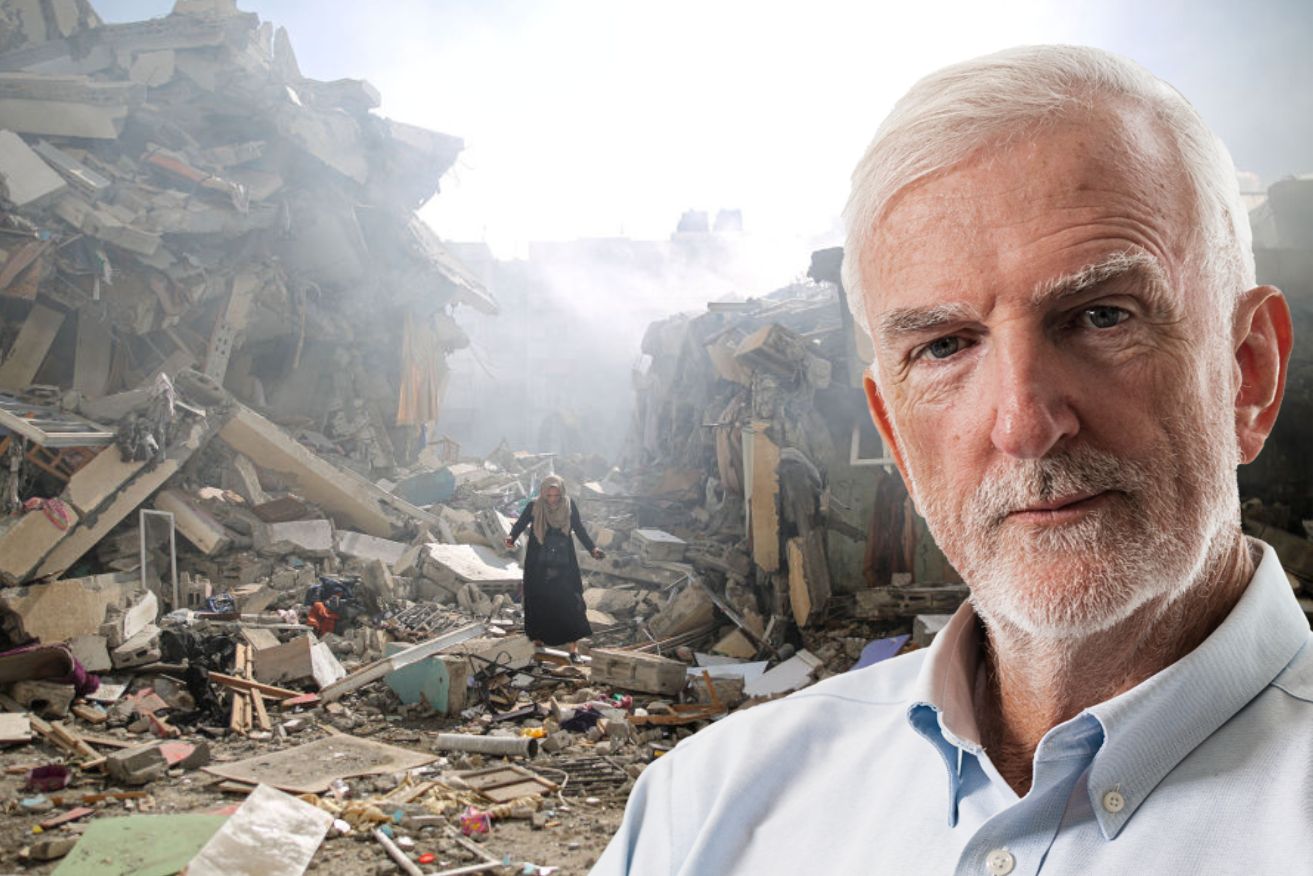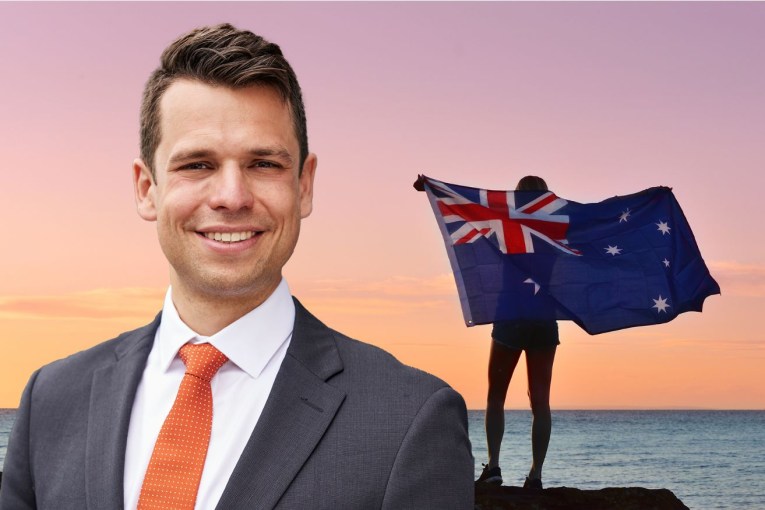Michael Pascoe: The outrage over Gaza killings but we do it, too


The destruction in the Gaza Strip seems no closer to ending. Photo: Getty
It shouldn’t be too surprising that the US and its loyal allies Australia and the UK have been somewhat muted in their protests over civilian deaths in Gaza – not much more than “um, could you ease up a little and try not to kill as many children, please, maybe have a ceasefire for a bit”.
The lack of surprise is because we do it, too – kill children, blow up hospitals, bomb and shell civilian areas, cut off aid and medical supplies.
Strong protests now rather than soft pleading would result in understandable charges of rank hypocrisy by Israel’s fundamentalist government.
Amos Yadlin, the former head of Israeli military intelligence, has already said as much: “Israel will treat this state the way you treated Japan when they attacked you on Pearl Harbor, the way the Allies treated Germany in the Second World War.”
Dresden, Tokyo, Hiroshima, Nagasaki et al – hundreds of thousands of women and children slaughtered, horrifically burned and irradiated.
But you don’t have to go back that far for examples, or to the carpet bombing of swathes of Indochina.
The Iraq war
We did it in the illegal Bush/Blair/Howard Iraq war and don’t want to examine it.
Amidst the general cheerleading reportage of journalists embedded with those invasion forces, a paragraph sticks in my memory: An American artillery officer admitting some angst about who the shells he was lobbing into Baghdad might be hitting.
Of more direct relevance to what is happening now in Gaza was the Fallujah battle substantially directed by an Australian – Major-General and subsequently Senator Jim Molan, the multinational force chief of operations.
On the occasion of Senator Molan’s death last year, John Menadue reposted a Pearls and Irritations article from 2018, primarily concerned with the general failure of Australian media’s Middle East coverage and especially the role of News Corp who never apologise for their gross mistakes. In part, Mr Menadue recorded:
“Whilst our mainstream media was asleep or deliberately turned a blind eye with the encouragement of ADF public relations about what was happening in Iraq and Fallujah, overseas media reported extensively.
On October 16 2004, The Washington Post reported that “electricity and water were cut off to the city just as a fresh wave of [bombing] strikes began Thursday night, an action that US forces also took at the start of assaults on Najaf and Samarra”.
The Red Cross and other aid agencies were also denied access to deliver the most basic of humanitarian aid – water, food, and emergency medical supplies to the civilian population.
On November 7, a New York Times front page story detailed how the Coalition’s ground campaign was launched by seizing Fallujah’s only hospital: “Patients and hospital employees were rushed out of the rooms by armed soldiers and ordered to sit or lie on the floor while troops tied their hands behind their backs.”
The story also revealed the motive for attacking the hospital: “The offensive also shut down what officers said was a propaganda weapon for the militants: Fallujah General Hospital with its stream of reports of civilian casualties.” The city’s two medical clinics were also bombed and destroyed.
White phosphorous
In a November 2005 editorial denouncing its use, The New York Times described white phosphorous: “Packed into an artillery shell, it explodes over a battlefield in a white glare that can illuminate an enemy’s positions. It also rains balls of flaming chemicals, which cling to anything they touch and burn until their oxygen supply is cut off. They can burn for hours inside a human body.”
News Corp was outraged when Saddam Hussein used phosphorous against the Kurds but was silent when the US used it in Fallujah.
In early November 2004, alongside The New York Times reports that Fallujah’s main hospital had been attacked, the Nation magazine referred to “reports that US armed forces killed scores of patients in an attack on a Fallujah health centre and have deprived civilians of medical care, food and water”.
The BBC reported on 11 November 2004: “Without water and electricity, we feel completely cut off from everyone else … there are dead women and children lying on the streets. People are getting weaker from hunger. Many are dying from their injuries because there is no medical help left in the city whatsoever.”
On 14 November 2004, The Guardian reported: “The horrific conditions for those who remained in the city have begun to emerge in the last 24 hours as it becomes clear that US military claims of ‘precision’ targeting of insurgent positions were false … The city has been without power or water for days.”
A further allegation supported by BBC pictures on 14 November 2004 is that Coalition forces prevented the distribution of aid supplies to civilians.
The Independent referred to an Italian documentary which claimed that Iraqi civilians, including women and children, had died of burns caused by white phosphorous during the assault on Fallujah.”
Most but not all the civilian population had managed to flee Fallujah before the attack. Unlike the people of Gaza, they had somewhere to flee to.
No victory
The end result was that the Bush/Blair/Howard “Coalition of the Willing” destroyed Fallujah but it was not a victory. It did not wipe out the insurgents, a Guardian reporter writing that it simply spread the fighters out around the country and increased the chance of civil war in Iraq because the Coalition used the new national guard of Shias to suppress Sunnis.
There is a striking similarity to some of our tactics in Fallujah and what is happening in Gaza. No wonder we don’t suggest war crimes are being committed by Israel. The Hamas military and terrorist attacks on October 7 are easier to decry as they are unlike our military ventures.
The children killed by one means or another are just as dead, the cycle of death perpetuated.
Australia has no influence on the Netanyahu government or Hamas. It’s doubtful how much influence we have on our own government when a prime minister can send Australians to kill and be killed on the strength of a presidential phone call, falsified intelligence and a verbal cabinet briefing and no government since has had any interest in establishing a brake on such folly.
A royal commission?
John Menadue’s post concluded by noting Tony Abbott established a royal commission to pursue Kevin Rudd over pink batts (four men had been killed installing roof insulation).
“How much more do we need a royal commission to examine our invasion of Iraq on the basis of false information?” he asked.
“That royal commission should also examine the performance of our media in the coverage of events leading to our sending troops and the subsequent disasters that followed in Iraq, including Fallujah.”
The work of war correspondents in Vietnam, taking the horror and futility of war into American and Australian lounge rooms, helped end that war.
Seeing the horror of October 7 and Gaza so far doesn’t seem to be ending this war, only getting an extraordinarily large number of journalists killed.
And we’re not game to look at what we’ve done ourselves and who was responsible for it.








